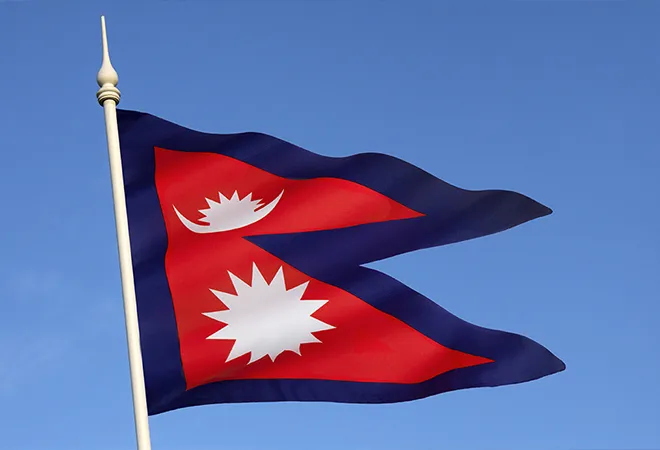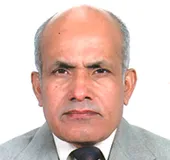-
CENTRES
Progammes & Centres
Location
Rampant corruption in Nepal has raised a question mark about the sustainability of the present form of federalism in the country

Never before under the unitary system had the local units like the municipalities and rural municipalities received so many funds for development as after the introduction of the federal system in Nepal. Many development works related to roads, irrigation, and building construction have been built in almost all the municipalities and rural municipalities ranging from the terai region, the hills, and the mountain regions. However, the rampant corruption, imposition of a heavy tax on the people, gross misuse of funds, and duplication of work at the federal, provincial, and local levels have created disenchantment among the people towards the federal system itself just within six years of its implementation. Towards this end, a massive demonstration was organised in Kathmandu by different groups of people for the end of a federal form of government.
The federal system was introduced in Nepal’s Constitution in 2015. Accordingly, elections were held for the federal parliament, provincial assemblies, and local units twice—the first time in 2017 and the second time in 2022. Under the federal system, 761 governments have been functioning in the country, including one at the federal level, seven at the provincial level, and 753 at the local level. As per the constitutional provision, each of the 761 governments work independently, though the provincial and local governments depend largely on the federal government in Kathmandu for financial support and administrative staff.
The rampant corruption, imposition of a heavy tax on the people, gross misuse of funds, and duplication of work at the federal, provincial, and local levels have created disenchantment among the people towards the federal system itself just within six years of its implementation.
It was after a long struggle by the Madheshis, Janajatis, Dalits, and other disadvantaged groups of people that federalism was introduced in the country. The Terai Congress leader Vedanand Jha raised his voice for the federal regime as far back as the 1950s. Later, the Maoists also supported the federal structure during their People’s War between 1996 and 2006 and even afterwards.
Even though Nepal adopted the federal system, the provincial and local bodies were not given adequate administrative power. In practice, they cannot even recruit administrative staff. The Ministry of Home Affairs of the federal government of Nepal at the centre controls the administrative power. Similarly, the Ministry of Finance of the Nepal government provides a larger share of funds to the provincial and local bodies.
The local bodies have comparatively more role to play in the existing federal system. In the day-to-day life of the people, the role of the provincial governments remains rather limited. This was one of the factors why the Rastriya Prajatantra Party under Rajendra Lingdel and the Swatantra Party under Ravi Lamichhane wanted to scrap the provincial governments from the federal structure in the November 2022 elections.
The Ministry of Finance of the Nepal government provides a larger share of funds to the provincial and local bodies.
During the last six years, the provincial governments largely failed to deliver in the same way as the local bodies. However, both the provincial and local governments accuse the federal government of their poor delivery as the latter could neither provide needed funds to them in time nor did it provide the required administrative staff for running the day-to-day administration. On the other hand, the federal government accuses the provincial and local bodies of not properly spending the amount allotted to them.
Even though the provincial and local units have not delivered to the expectation of the people, they continue to exist. In fact, they pose as milking cows for almost all the political parties—big or fringe. They happen to serve as recruitment centres for political party workers.
So, people’s frustrations against the federal system are mounting in several parts of the country. Most of the people’s representatives serving in the provincial and local governments misuse public funds and enjoy perks for their vested interests. After the introduction of the federal system, there has been massive decentralisation of corruption. Earlier the virus of corruption was mostly confined to the centre, but now it has spread from the centre to provinces and further to each ward of the municipalities or rural municipalities.
Most of the people’s representatives serving in the provincial and local governments misuse public funds and enjoy perks for their vested interests.
Recently, Transparency International has come out with the Corruption Perceptions Index (2022) of 180 countries in which Nepal ranked 110 positions with rampant corruption. In South Asia, Bhutan’s ranking is 25th while that of Maldives is 85th, India 85th, Sri Lanka 101st, Pakistan 140th, Bangladesh 147th and Afghanistan 150th. Only Pakistan, Bangladesh and Afghanistan happen to be more corrupt than Nepal in South Asia.
It is unfortunate that the federal regime seems to be drowning in corruption cases from different corners. The lack of accountability and coordination mechanism among the federal, provincial, and local units has been largely responsible for the rampant corruption and their poor delivery in the country. This has raised a question mark about the sustainability of the present form of federalism in the country in which the main beneficiaries are the politicians and the political party workers. The deteriorating economic condition of the country is also compelling the federal government to reconsider meeting the hefty expenses on the seven provincial and 753 local governments. In such a situation, the fall of federalism seems to be imminent.
The views expressed above belong to the author(s). ORF research and analyses now available on Telegram! Click here to access our curated content — blogs, longforms and interviews.

Hari Bansh Jha was a Visiting Fellow at ORF. Formerly a professor of economics at Nepal's Tribhuvan University, Hari Bansh’s areas of interest include, Nepal-China-India strategic ...
Read More +